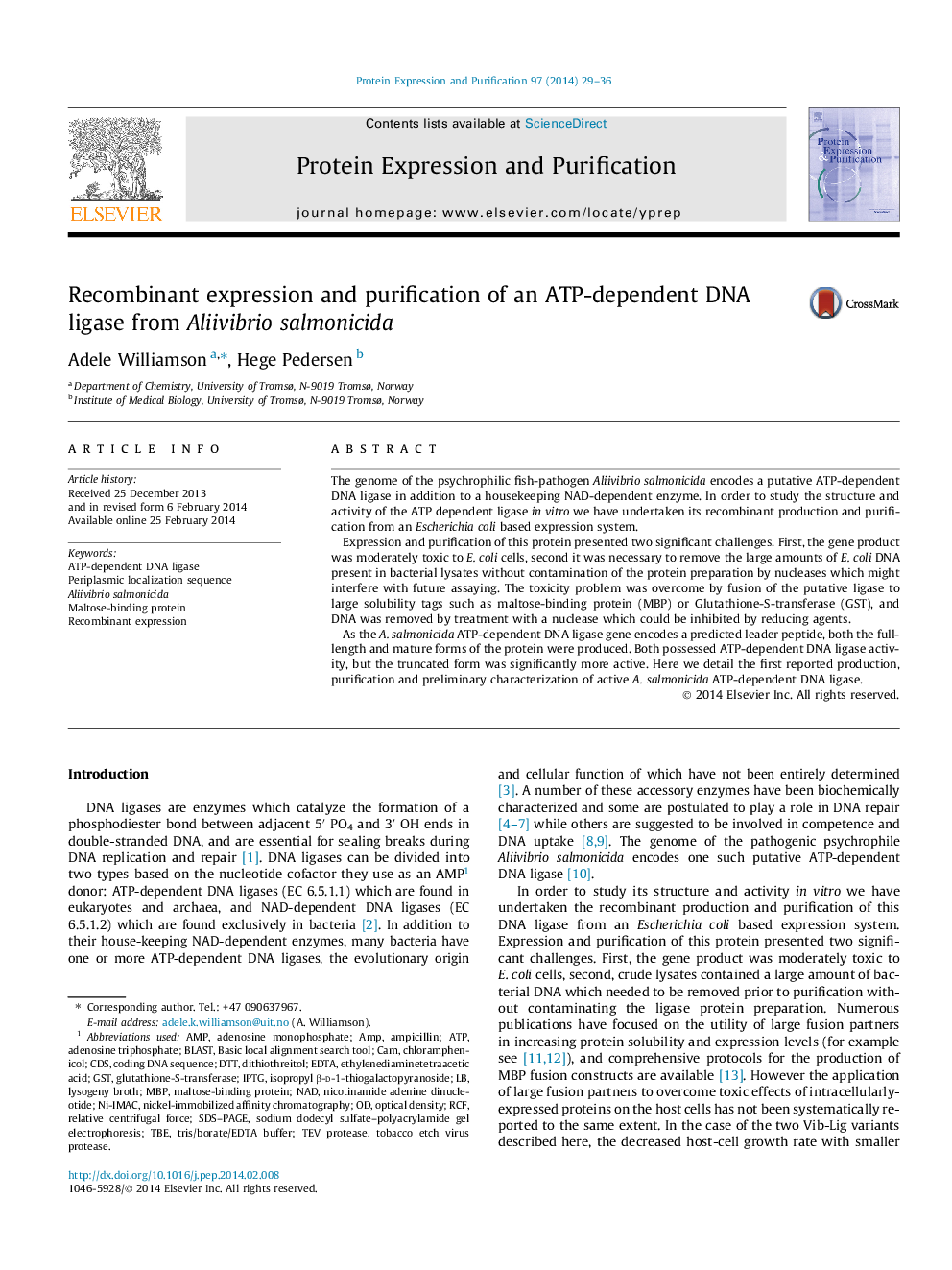| Article ID | Journal | Published Year | Pages | File Type |
|---|---|---|---|---|
| 2020493 | Protein Expression and Purification | 2014 | 8 Pages |
•A putative periplasmic DNA ligase from Aliivibrio salmonicida was recombinantly produced in E. coli.•Both the full-length and N-terminally truncated variants were expressed and purified.•Toxicity of gene products to the host cells was overcame by fusion to large solubility tags.•The truncated protein is more active in DNA ligation than the full-length version.
The genome of the psychrophilic fish-pathogen Aliivibrio salmonicida encodes a putative ATP-dependent DNA ligase in addition to a housekeeping NAD-dependent enzyme. In order to study the structure and activity of the ATP dependent ligase in vitro we have undertaken its recombinant production and purification from an Escherichia coli based expression system.Expression and purification of this protein presented two significant challenges. First, the gene product was moderately toxic to E. coli cells, second it was necessary to remove the large amounts of E. coli DNA present in bacterial lysates without contamination of the protein preparation by nucleases which might interfere with future assaying. The toxicity problem was overcome by fusion of the putative ligase to large solubility tags such as maltose-binding protein (MBP) or Glutathione-S-transferase (GST), and DNA was removed by treatment with a nuclease which could be inhibited by reducing agents.As the A. salmonicida ATP-dependent DNA ligase gene encodes a predicted leader peptide, both the full-length and mature forms of the protein were produced. Both possessed ATP-dependent DNA ligase activity, but the truncated form was significantly more active. Here we detail the first reported production, purification and preliminary characterization of active A. salmonicida ATP-dependent DNA ligase.
